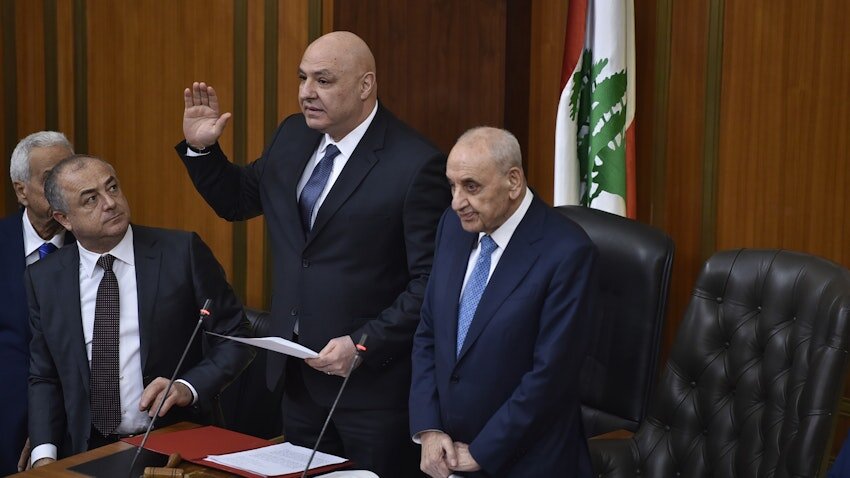Lebanon and the Muscat negotiations

BEIRUT — As U.S. pressure on Hezbollah escalates, the Lebanese, as well as those in West Asia and the larger world, are anticipating the U.S.-Iran negotiations.
Ariel Kahana, a diplomatic and US affairs analyst for Israel Hayom, quoted political sources as saying that Israel had no prior knowledge of the “agreement” between Trump and the Iranians to begin negotiations, confirming that, according to a source in the Israeli delegation, “the shock was evident.”
Avi Ashkenazi, a military affairs correspondent and commentator for Maariv, further said that Trump informing Netanyahu of his intention to enter into negotiations with Iran was a “real bombshell,” especially given the widespread belief that Washington was on the verge of launching a military attack against it.
Meanwhile, observers believe that the demand from Iran by the US will likely lead to a decline in Tehran’s support for the Axis of Resistance movements.
Other observers seriously warn that any negative results will raise the price of a barrel of oil to nearly $1,00.
Also, some analysts hope that an Iranian-U.S. rapprochement would lead to de-escalation and, consequently, the lifting of restrictions on Lebanon’s reconstruction. In an interview, Lebanese Parliament Speaker Nabih Berri described the negotiations as “fateful”.
In parallel, the Saudi Al Arabiya channel fanned the flames of the aggression against Lebanon, coinciding with false allegations broadcast by Avichay Adraee, the spokesperson for the Israeli occupation army, regarding weapons smuggling to Hezbollah through Beirut port.
The suspicious step has widely been read as a prelude to security restrictions similar to those already taking place at Beirut’s airport, or perhaps even for a new aggression.
In response to orders from the U.S. spy den (embassy) in Beirut, Nawaf Salam’s government rushed to declare: “We will operate at the port with the same force we used at the airport ... We must work to determine the legality of the port and its board of directors, and to review, amend, and implement the laws.”
Obviously, this new blatant intervention is in line with the ongoing US-led Israeli aggression, which is not limited to the intention of disarming the resistance movement but rather places Lebanon’s vital facilities under the embassy’s complete control.
During her recent ill-fated visit to Beirut, the U.S. Deputy Special Envoy to West Asia, Morgan Ortagus, inquired in detail about the port’s affairs, requesting that those close to Hezbollah be excluded from any key positions, especially customs.
On Al Arabiya, while in Abu Dhabi, Ortagus described Hezbollah as “a cancer that Lebanon must get rid of,” ordering the Lebanese government to take special measures at Beirut port.
It became clear that Ortagus had toned down her rhetoric in Beirut to avoid embarrassing her anti-Hezbollah allies.
Leave a Comment